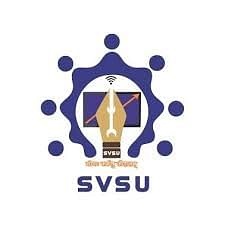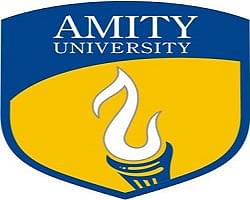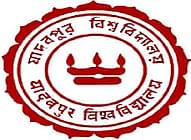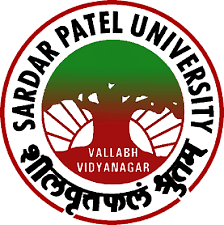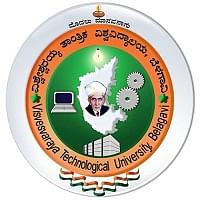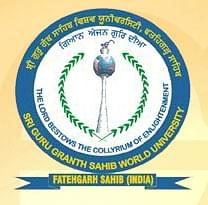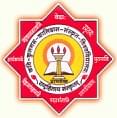Introduction about BSc in Mathematics
A Bachelor of
Science (BSc) in Mathematics at the best affordable college in India is an undergraduate degree program that
provides students with a comprehensive understanding of mathematical principles
and their applications across various fields. This program typically covers a
broad spectrum of mathematical topics, ranging from calculus and algebra to
probability theory and differential equations.
Throughout the
course of study, students delve into both theoretical concepts and practical
problem-solving techniques. They develop analytical and critical thinking
skills, as well as the ability to formulate and solve complex mathematical
problems.
In addition to core
mathematics courses, students pursuing a BSc in Mathematics often have the
opportunity to choose from elective courses in specialized areas such as
cryptography, number theory, mathematical modeling, and computational
mathematics. These electives allow students to tailor their education to suit
their interests and career goals.
Upon completion of
a BSc in Mathematics, graduates are well-equipped for a variety of career
paths. Many pursue further studies in mathematics or related fields such as
computer science, finance, or physics. Others find employment in industries
such as education, research, data analysis, finance, and technology, where
strong mathematical skills are highly valued.
Overall, a BSc in
Mathematics provides students with a solid foundation in mathematical theory
and its practical applications, preparing them for diverse opportunities in
both academia and the professional world.
What is eligibility for admission at BSc in
Mathematics ?
The specific
eligibility criteria for admission to a Bachelor of Science (BSc) in
Mathematics program can vary depending on the institution and country. However,
there are some common requirements that students typically need to meet:
ü Educational Qualifications: Most
universities require applicants to have completed their secondary education or
equivalent qualification, such as high school or its equivalent (e.g.,
A-levels, IB Diploma). Students should have a strong academic background in
mathematics, as well as in related subjects such as physics and chemistry,
depending on the program requirements.
ü Minimum Grade Point Average (GPA):
Institutions may set a minimum GPA requirement for admission. This GPA
threshold can vary depending on the competitiveness of the program and the
institution's standards.
ü Prerequisite Courses: Some BSc in
Mathematics programs may require applicants to have completed specific
prerequisite courses in mathematics or related subjects during their secondary
education. These prerequisite courses may include topics such as calculus,
algebra, trigonometry, and geometry.
ü Standardized Tests: In some cases,
universities may require applicants to submit scores from standardized tests
such as the SAT or ACT (in the United States) or the A-levels (in the United
Kingdom) as part of the admission process. These tests help assess the
applicant's academic aptitude and readiness for university-level studies.
ü Language Proficiency: For international
students or non-native English speakers, demonstrating proficiency in the
language of instruction (usually English) may be necessary. This requirement is
typically fulfilled by submitting scores from standardized English language
proficiency tests such as the TOEFL or IELTS.
ü Application Materials: Applicants are
usually required to submit an application form along with supporting documents,
which may include transcripts, letters of recommendation, a personal statement
or essay, and any other required documentation specified by the institution.
It's essential for
prospective students to carefully review the admission requirements of the
specific universities and programs they are interested in, as these
requirements can vary. Additionally, meeting the minimum eligibility criteria
does not guarantee admission, as admission decisions may also consider factors
such as the applicant's personal statement, letters of recommendation,
extracurricular activities, and other qualitative aspects.
What is admission process for Bsc in Mathematics ?
The admission
process at top affordable BSc (Bachelor of Science in Mathematics) college in India typically involves several steps, which may
vary depending on the institution and country. Here is a general overview of
the admission process:
o Research and Selection of Universities:
Prospective students should research universities offering BSc programs in
Mathematics and identify those that best align with their academic interests,
career goals, and personal preferences. Factors to consider include the
university's reputation, program curriculum, faculty expertise, location,
facilities, and financial considerations.
o Review Admission Requirements: Applicants
should carefully review the admission requirements for each university and
program they are interested in. These requirements typically include
educational qualifications, minimum GPA, prerequisite courses, standardized
test scores (if applicable), language proficiency, and submission of
application materials.
o Prepare Application Materials: Applicants
need to gather and prepare all required application materials, which may
include:
o Completed application form
o Official transcripts or academic records
from secondary school or previous higher education institutions
o Standardized test scores (e.g., SAT, ACT,
A-levels)
o English language proficiency test scores
(e.g., TOEFL, IELTS) for non-native English speakers
o Letters of recommendation from teachers,
counselors, or other individuals who can speak to the applicant's academic
abilities and character
o Personal statement or essay explaining the
applicant's academic and career goals, relevant experiences, and reasons for
choosing the program
o Submit Application: Applicants must submit
their completed application form and all required documents by the specified
deadline. Some universities may allow online submission of applications, while
others may require hard copies to be mailed.
o Application Review: Once the application
deadline has passed, the university's admissions committee will review all
submitted applications. They will evaluate the applicant's academic
qualifications, test scores, letters of recommendation, personal statement, and
any other relevant factors.
o Notification of Admission Decision: After
reviewing applications, the university will notify applicants of their
admission decision. This notification may come in the form of an acceptance
letter, email, or through an online portal. Accepted students may also receive
information about enrollment procedures, financial aid, housing options, and
other important details.
Enrollment and
Confirmation: Accepted students must follow the university's instructions to
confirm their enrollment by submitting any required enrollment forms and
deposits by the specified deadline. This process secures their spot in the BSc
in Mathematics program.
What is syllabus for Bsc in Mathematics ?
The syllabus for a
Bachelor of Science (BSc) in Mathematics program can vary depending on the
university and country. However, here is a general overview of the typical topics
covered in a BSc Mathematics curriculum:
1.
Core
Mathematics Courses:
2.
Calculus:
Differentiation, Integration, Multivariable Calculus, Differential Equations
3.
Algebra:
Linear Algebra, Abstract Algebra, Number Theory
4.
Analysis:
Real Analysis, Complex Analysis
5.
Discrete
Mathematics: Graph Theory, Combinatorics, Logic
6.
Applied
Mathematics:
7.
Numerical
Analysis: Methods for Solving Equations, Interpolation, Numerical Integration,
Differential Equations
8.
Probability
and Statistics: Probability Theory, Descriptive Statistics, Inferential
Statistics, Regression Analysis, Hypothesis Testing
9.
Advanced
Mathematics:
10.
Partial
Differential Equations
11.
Fourier
Analysis
12.
Vector
Calculus
13.
Group
Theory
14.
Ring
Theory
15.
Measure
Theory
16.
Specialized
Electives:
17.
Mathematical
Modeling
18.
Cryptography
19.
Game
Theory
20.
Operations
Research
21.
Optimization
Theory
22.
Computer
Science and Programming:
23.
Introduction
to Programming (often using languages like Python, MATLAB, or C++)
24.
Data
Structures and Algorithms
25.
Computational
Mathematics
26.
Optional
Courses:
27.
Depending
on the university and program, students may have the opportunity to choose
elective courses based on their interests. These may include topics such as
Differential Geometry, Topology, Actuarial Mathematics, Mathematical Finance,
or Mathematical Biology.
28.
Capstone
Project or Thesis:
29.
Some
BSc Mathematics programs require students to complete a capstone project or
thesis, where they apply their mathematical knowledge to solve a real-world
problem or conduct independent research under the supervision of a faculty
member.
This outline
provides a broad overview of the typical syllabus for a BSc in Mathematics
program. However, students should consult the specific curriculum and course
offerings of the university they are interested in for detailed information on
course requirements, prerequisites, and electives. Additionally, the syllabus
may be subject to updates and changes over time to reflect advancements in the
field and the evolving needs of students and industries.
What is scope after Bsc in Mathematics ?
The scope after
completing a Bachelor of Science (BSc) in Mathematics from best universityin India is broad and diverse, with numerous opportunities available across
various industries and sectors. Here are some potential career paths and
further academic options for graduates:
Higher Education: Many graduates choose to pursue further
education by enrolling in postgraduate programs such as Master of Science (MSc)
or Doctor of Philosophy (PhD) in Mathematics or related fields. Advanced
degrees can lead to careers in academia, research, or specialized areas such as
mathematical finance, cryptography, or data science.
Research and
Development: Mathematicians
are employed in research institutions, government agencies, and private
companies to conduct research in areas such as pure mathematics, applied
mathematics, computational mathematics, and mathematical modeling. They work on
solving complex problems, developing algorithms, and advancing scientific
knowledge.
Education: Graduates with a BSc in Mathematics can
pursue careers in education as mathematics teachers or lecturers at schools,
colleges, and universities. They play a crucial role in teaching and inspiring
the next generation of mathematicians and scientists.
Finance and Banking: Mathematics graduates with strong
analytical and problem-solving skills are in demand in the finance and banking
sectors. They work as quantitative analysts, risk analysts, financial
consultants, or actuaries, applying mathematical models and statistical
techniques to analyze financial data, manage risks, and make informed
decisions.
Technology and IT: Mathematics graduates are sought after in
the technology and IT industry for roles such as software developers, data
analysts, machine learning engineers, and artificial intelligence researchers.
They use mathematical algorithms and computational techniques to develop
software, analyze data, and solve complex problems.
Engineering and
Science: Mathematics
graduates can pursue careers in engineering, physics, chemistry, biology, and
other scientific disciplines. They work on mathematical modeling, simulations,
and data analysis to solve problems in areas such as fluid dynamics,
electromagnetism, quantum mechanics, and molecular biology.
Government and
Public Sector:
Mathematicians are employed by government agencies, research institutes, and
non-profit organizations to work on projects related to public policy, urban
planning, transportation, environmental modeling, and healthcare analytics.
Consulting: Mathematics graduates with strong
analytical and communication skills can work in consulting firms, providing
strategic advice and solutions to clients in various industries such as
management consulting, healthcare consulting, and technology consulting.
Overall, the scope
after completing a BSc in Mathematics is vast and diverse, with opportunities
available in academia, research, education, industry, government, and beyond.
Graduates with strong mathematical skills are well-equipped to thrive in a wide
range of careers that require analytical thinking, problem-solving abilities,
and a solid foundation in mathematics.





